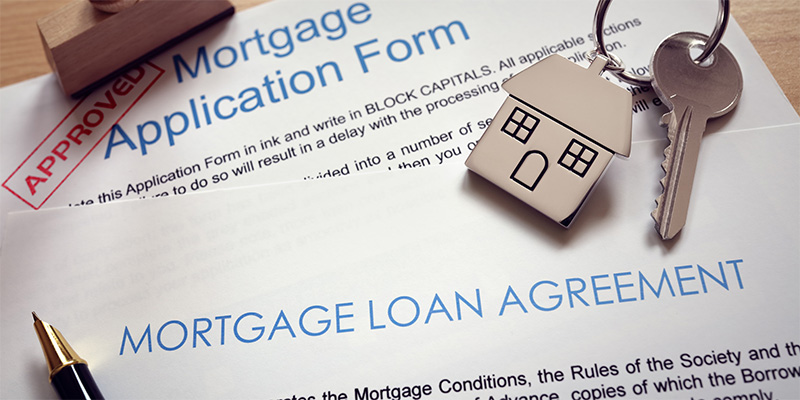
Buying a House Is Riskier than Investing in Stocks
October 25, 2023
I’m going to make a bold statement—well, it’s right there in the headline, so there goes the element of surprise.
Buying a house is riskier than investing in stocks. Yes, you heard that correctly. Why? For one, it is difficult to go bankrupt investing in stocks. Because if you have a portfolio of 30 stocks, all 30 of them would have to go to zero, which is kind of hard. Or if you’re using 50% margin, all your stocks could go down 50%. That’s also possible.
On the flip side, you can go bankrupt with a house very easily.
Let’s Break Down the Risk
If you put down 20% when you buy a house, finance 80%, and the price of the house goes down 20% or 30%, your equity is wiped out. You’re at zero, and you can’t move. You’re trapped. And if you have to sell your house and can’t pay to get out, then you’re bankrupt.
So yeah, buying a house is a lot riskier than buying stocks, for sure. And many people don’t understand this.
The process for buying a house and getting a mortgage is so easy and streamlined. It’s painless, and people kind of forget about the risk. Really, though, if you’re at the closing and signing the closing documents, your hand should be shaking because of the risk involved.
It is the riskiest thing you will do in your entire life outside of maybe skydiving. It’s extremely risky. You can go bankrupt with a house, and it doesn’t take much, especially for these people who get a VA loan and put 0% down, or those who get an FHA loan and put 3.5% down. In those cases, you’re underwater from the start because transaction costs are 6%, and it takes you 10 years to build up to 20% equity.
I say this all the time: The purchase of a house is the most important financial decision you’ll make in your life and possibly the riskiest.
Okay, What About Volatility?
This is the point in the conversation when you might say, “Well, stocks are more volatile!”
Guess what? Your house is also volatile.
See, the difference is your house doesn’t trade on an exchange, so you don’t know how the value fluctuates on a day-to-day basis. But the value of your house does fluctuate on a day-to-day basis. You just can’t see it. That’s the only difference.
Stocks, yes, are probably a bit more volatile, especially depending on what kind of stocks you own. Like, don’t YOLO on tech stocks exclusively. Spread your investments around.
That said, a house is also volatile. Imagine that the value of your house was on an app on your phone, and you could check it minute by minute. You would say that the value of your house was volatile.
And that’s one of the reasons why owning a house is so great—because there's no mark to market. You’re never tempted to sell, and you can just let it compound over time because it’s not on an app on your phone. Not to mention the fact that your house can burn down, get washed away in a hurricane, blown apart in a tornado, and so forth. These are all risks.
And yeah, there’s insurance though, but it’s a huge pain in the butt. I know two people whose houses burned down. It’s a big deal, and the insurance doesn’t cover everything. It’s a life-changing event.
There is also a massive amount of leverage in buying a house. Let’s say you buy a $300,000 house and put $60,000 down. If the price of the house drops to $240,000, your equity is wiped out. You are at zero.
Debt and Risk
You’ve likely heard me talk about debt and risk, the two sources of financial stress. One of the reasons I am very much against debt is because I am very much against risk.
If you minimize your debt and minimize your risk, you will have less financial stress. One good way to skyrocket your financial stress is to take out a giant mortgage with giant payments. Even with mortgage debt, I’m a huge advocate of paying off your mortgage in 10 years or less. You can pay off your mortgage in 10 years, and then you won’t have any debt. Then you won’t have any risk, and you’ll be free to take risk on other things.
Do Your Research
From an emotional perspective, if you buy the wrong house—let’s say you move in someplace and have terrible neighbors—that’s going to cause you a lot of stress. Buying the wrong house can make you miserable. Nobody ever talks about that.
So, if you’re buying a house, don’t just look at three houses and be done with it. You want to look at 30 different houses. You want to kiss a lot of frogs. You want to spend a long time looking at a house to make sure you make the right decision.
Also worth mentioning—if you’re not ready to buy a house, then don’t buy a house. A lot of people say they don’t feel like an adult if they don’t buy a house. And you’re going to take this huge financial risk when you have $150,000 in student loans and you’re 27 years old so you can feel like an adult? Tons of debt will make you feel like an adult? Come on.
You always want to avoid the zero. First, do no harm. Stocks cannot get you to zero. They all must go to zero. A house can, so be very careful when you’re buying a house.
Jared Dillian, MFA

Most popular upgrades from The Jared Dillian Letter…
Heartland Investor: Jared’s newest premium service. Built for investors who want to start building wealth deliberately, durably, and without the hype.
Each month, Jared and his long-time analyst Adam Crawford bring you one undervalued stock with a strong balance sheet, wide moat, and room to run. Designed for thoughtful, fundamentals-first investors who want a portfolio that can last.

The Daily Dirtnap: Jared’s macro newsletter for investing professionals. This daily letter takes a top-down approach, looking at the various asset classes, including stocks, bonds, currencies, and commodities. Join over 4,000 readers who read his market insights every weekday.


Street Freak: As the most active of Jared’s portfolio products, Street Freak is an aggressive stock-picking newsletter. It’s written for astute investors who crave creative, fresh macro analysis and forward-looking trade ideas so they can invest more opportunistically, without much hand-holding along the way. Adjusted for risk, of course.
